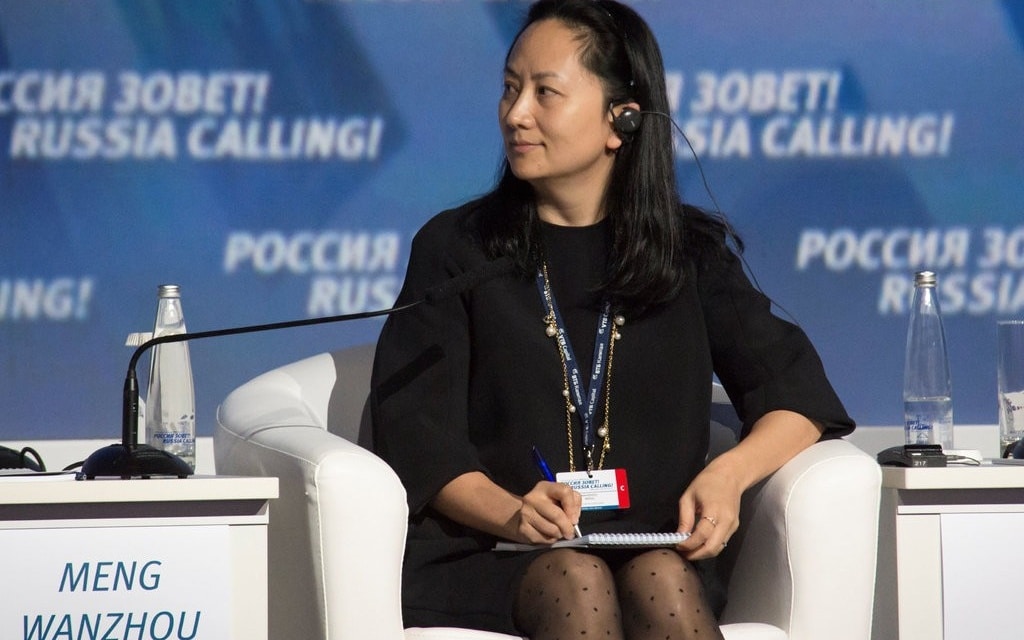Meng Wanzhou (Alexander Bibik/Reuters)
The US risks trade talks with China — and thus the easing of Donald Trump’s trade war — with the arrest of a top Chinese executive.
As Trump was dining with Chinese President Xi Jinping on Saturday night at the G20 summit in Argentina, Canadian police carried out a US request and detained Meng Wanzhou, the chief financial officer of China’s largest communications technology firm Huawei.
The Justice Department is investigating Huawei, on charges of violating US sanctions through business links with Iran. The arrest is also a wider shot by the Trump Administration in its campaign to limit the global spread of Chinese technology.
Meng, the daughter of Huawei’s founder, was seized as she prepared to board a flight in Vancouver. She faces an extradition hearing on Friday.
“People familiar with the probe” said Huawei has been under scrutiny since 2016, including possible bank fraud through misleading use of HSBC Holdings to conduct transactions involving Iran.
Beijing protested, with Foreign Ministry spokesman Geng Shuang saying, “To detain someone without giving clear reason is an obvious violation of human rights.”
Financial markets dropped sharply after the news broke on Thursday, before a modest recovery in the afternoon.”
US officials said that Trump was unaware of the arrest as he went into Saturday’s meeting with Xi, and the topic was not raised.
National Security Advisor John Bolton said Justice Department notifications “happen with some frequency” and “we certainly don’t inform the President on every one of them”.
Trump had already unsettled last weekend’s proclamations of advance with tweets labelling himself a “Tariff Man”, sending the US market into one of its sharpest falls in recent history on Tuesday. He tried reassurance on Wednesday, “China does not want Tariffs!”
TrumpWatch, Day 685: Trump’s Mixed Signals on His China Trade War
After the G20 summit meeting, the Trump Administration deferred a rise in tariffs, scheduled on January 1, from 10% to 25% on $200 billion of Chinese products. China announced a general “willingness” to take more US products. But the two countries differed in their summaries of the discussion, and the White House warned that the tariff rise would be imposed if there was no success within 90 days in trade talks.
Earlier this year, the Administration planned to punish ZTE, China’s second-largest communications technology company, for violation of US sanctions. After the company warned that it could close with the loss of 75,000 jobs, Trump pulled back the threat.

